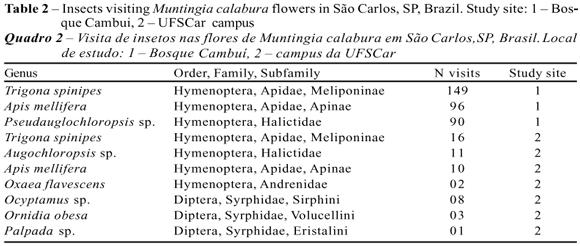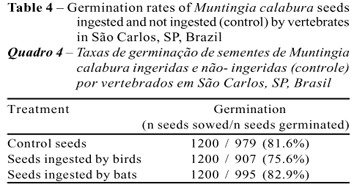The exotic tree Muntingia calabura L. (Muntingiaceae), a species native to Central America, is used as fish feed and fiber and cellulose production in Brazil. This study was carried out in urban areas and verified the reproductive biology of this plant species. Flower and fruit morphology, compatibility system, reproductive phenology, pollination and frugivore animals, and germination of disseminated seeds were recorded by standard field and laboratory procedures. This tree is self-compatible and autonomously self-pollinated, with its flowers being mainly visited by bees and its fruits consumed by birds and bats. Germination of its dispersed seeds is fast and occurs at a high rate. The results of this work suggest that M. calabura is very adaptable to cultivated areas,thus being an excellent choice for urban reforestation. However, its reproductive characteristics place this plant as an invasive species with significant potential in southeastern Brazil.
Plant reproduction; heterogeneous reforestation; urban ecosystems






